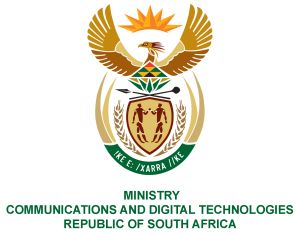MINISTER KHUMBUDZO NTSHAVHENI’S REMARKS ON THE LAUNCH OF THE AFRICA’S AI BLUEPRINT AT THE SMART AFRICA BOARD MEETING
MEDIA STATEMENT
REMARKS ON THE LAUNCH OF THE AFRICA’S AI BLUEPRINT
Programme Director
His Excellency, Mr. Paul Kagame, President of the Republic of Rwanda, and Chairman of Smart Africa Alliance
Excellencies and Heads of State and Governments
The Secretary-General of the ITU
Ministers present today
Director-General of the Smart Africa Alliance, Mr. Lacina Kone
Directors-Generals
Smart Africa Alliance Partners
Ladies and Gentlemen
Let my appreciation of the invitation extended to South Africa to participate in this the 10th Smart Africa Board meeting.
To our host, Excellency President Kagame, I bring you revolutionary greetings from your brother, His Excellency, President Ramaphosa who due to extended Cabinet engagements, could not join you this afternoon. He instructed me to express South Africa’s commitment to the work of Smart Africa Alliance to ensure that digital technologies transform the continent to a world-class sophisticated digital economy.
South Africa is honored to present to this august gathering, the Smart Africa Alliance Artificial Intelligence Blueprint for adoption. Globally, Artificial Intelligence (AI) is rapidly becoming a technology tool for growth and development as a general-purpose technology (GPT).
We have noted that regions such as the European Union (EU), North America, and Asia have developed their regional AI approaches as a collective and they are endeavoring to place their regions at the forefront of global leadership on AI and have dedicated investments and funds alongside such approaches. This reaffirms the notion that global competitiveness and capacity growth, rests in regional and continental cooperation.
During his tenure as the Chairperson of the African Union (AU) in 2020, His Excellency, Mr. Cyril Matamela Ramaphosa, the President of South Africa made a clarion call that as a continent, we must take advantage of AI as a developmental tool. This call propelled the AU to set-up an approach through the Smart Africa Alliance supported by South Africa and other member-states to develop a blueprint that would guide how we can approach the coordinated adoption of AI.
Therefore, the strategy for Africa, through the leadership of the Smart Africa Alliance, for a collective approach on AI as espoused by the current AI Blueprint for Africa is opportune for us as the African continent in driving Africa’s competitiveness and growth through collective adoption of digital technologies. The fact that the Smart Africa Alliance is today discussing a final draft AI Blueprint of Africa for adoption, it implies that our continent is resolute on being part of the leading pack in the 4th Industrial Revolution.
The AI Blueprint is envisaging to ensure that all African countries build national capacity and capabilities through the generic AI toolkit to address the State’s current problems and challenges. To emphasize this point let me borrow from His Excellency, President Paul Kagame, when he stated that, I paraphrase,
“Connections between the technology-hungry countries of Africa, must seek to imperatively take up science and technology to illustrate the almost limitless ways digital technologies can be used to sidestep developmental challenges.”
Key aspects of the AI Blueprint of Africa that are noteworthy to acknowledge are the following:
1. It proposes that the African continent must set-up regional Centers of Excellence for AI specializing in different fields of AI to ensure multiple focus and collaboration which would foster the needed co-operation.
2. It proposes ethical dimensions and considerations around AI use and adoption and that human development must remain the focal point in the adoption of AI.
3. It re-positions the preservation of Data as an economic tool that must be effectively managed and utilized for economic development of our individual countries and the continent.
4. It outlines the economic sectors that could be highly advanced through the adoption of AI and through taking advantage of current plans.
5. It further proposes a high-level roadmap that can be considered by member-states in tackling the AI adoption and permeation.
6. Finally, it proposes some policy and regulatory approaches that would have to be considered in addressing the AI.
In South Africa, guided by the Presidential Report on the 4th Industrial Revolution Commission (PC4IR), headed by Professor Tshilidzi Marwala, Vice-Chancellor of the University of Johannesburg, who has taken the liberty to join our meeting today, has already begun to embrace AI as the digital technology tool. Prof Marwala, together with his team of experts contributed to this AI Blueprint, and their contribution is highly appreciated.
The PC4IR report goes at length on where the key focus of AI should be and emphasizes the need for the involvement of the academia, private sector, civil society and women and youth associations.
To this end, we have set-up the WEF AI Centre of Excellence in 2021, which is managed by our Centre for Scientific and Industrial Research (CSIR) and academic institutions. At the policy level, we are in a process of developing an AI Policy which will lead to the establishment of an AI Institute located at our universities. The AI Institute will be support by the AI Council formulated from a network of universities in our country. As recommended in the AI Blueprint, South Africa’s AI Institute will build network relationship with other AI Centers of Excellence from around the continent.
In conclusion, I would like to express my sincere appreciation to the work undertaken by the Working Group on AI, which comprised of the Africa member-states, global developmental organizations, private sector, academia, and diaspora non-governmental organization, led by Smart Africa Secretariat, and through the chairpersonship of the Republic of South Africa and supported by the German Developmental Organization (GIZ). They have indeed done great preparatory work which needs to be taken up with speed and foster AI adoption throughout the African continent.
I thank you.




